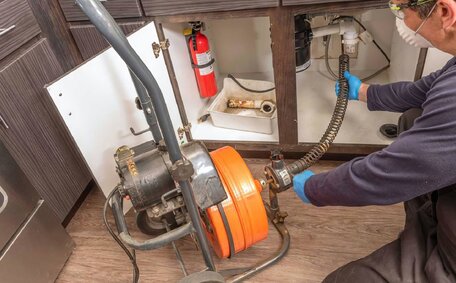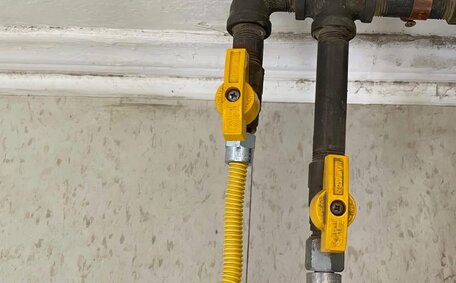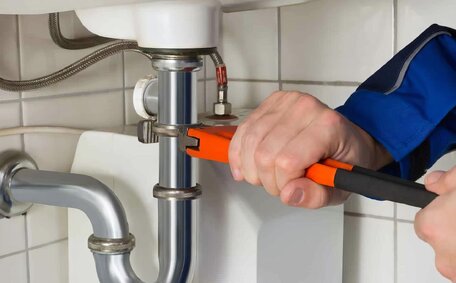Introduction to landlord responsibilities regarding gas fittings
As a landlord, it’s your legal responsibility to ensure all your gas installations and appliances are safe for your tenants to use. Neglect of gas safety obligations beyond a year can incur severe fines or even imprisonment. You must maintain all gas installations as per current regulations, ensuring safety checks by a licensed professional happen within legally mandated intervals.
By law, As a property manager, it’s imperative to arrange yearly safety checks for all gas appliances and fittings. This encompasses managing heaters, stovetops, hot water systems, and gas pipes to uphold a spotless safety record. Only a licensed gas fitter can confirm the safe operation and integrity of each appliance, ensuring no gas leaks that could endanger tenants.
During annual safety checks, the gas fitter will conduct essential repairs or replacements and monitor for any gas emissions. According to the gas safety act, landlords must document checks for verification and distribute copies of the gas safety certificate to tenants. Ensure you provide new tenants with this compliance certificate upon lease commencement.
If gas appliances are found to be faulty, as the landlord responsible, you must repair or replace them urgently and take the property off the rental market until the most recent issues are rectified. Recent incidents underscore the fatal consequences of neglecting professional safety checks for tenants.
Staying informed and scheduling periodic gas safety inspections can help you avoid penalties and maintain legal compliance for your rental’s gas systems. Tenants justifiably anticipate living in apartments free of fire hazards, gas leaks, and carbon monoxide dangers.
Ensuring gas appliances and fittings meet safety standards
Safety standards exist to reduce risks from gas appliances and fittings in rental properties. As a landlord, the law requires you to arrange landlord gas safety checks by a licenced gasfitter every 2 years in some states.
During a safety inspection, the gasfitter will thoroughly evaluate gas appliances, fittings, and flues. This includes stovetops, ovens, various type gas hot water systems and space heaters which heaters should be checked by a professional. They ensure there no leaks are present, that the appliance is working correctly, and exhaust gases vent outside safely.
If your home has old appliances, you’ll need to have them updated or replaced to comply with modern regulations and standards. For example, it is advisable for landlords to replace atmospheric hot water systems reliant on natural gas that is over 15 years old with modern instantaneous systems.
The gasfitter will issue a safety certificate listing all gas appliance installations they inspected, confirming that the appliances are safe use properly and functioning correctly. As the landlord, you should retain safety check records for a minimum of 2 years and provide copies to tenants.
Keeping abreast of safety checks and promptly addressing any issues guarantees that your rental complies with legal standards. It also instills peace mind in tenants and prevents the risks of gas leaks, fires or carbon monoxide poisoning.
Regular servicing requirements for gas appliances
Landlords must schedule annual maintenance for all gas appliances, conducted by a licensed gasfitter, to adhere to safety regulations.
In the service arranged by the property manager, the gasfitter will conduct comprehensive safety checks to guarantee the proper function of your stovetops, ovens, heaters, and hot water systems. They will check all components are operating correctly, test for gas leaks, replace worn parts and adjust or clean the appliance as needed.
It’s recommended services for plumbing gas systems are scheduled before peak winter demand to avoid lengthy wait times for repairs if issues arise. Tenants must be given reasonable notice of any scheduled maintenance visits.
Regular servicing minimises breakdown risks, ensuring renters can operate gas appliances trouble-free— an issue experienced by over 35% of tenants. Consistent maintenance extends appliance longevity and enhances the plumbing system’s efficiency, leading to cost savings. Above all, thorough maintenance ensures the daily safety of appliances for tenants.
Educating tenants on safe gas appliance use
As a landlord, you have a duty to properly instruct tenants on using any gas appliance safely. Furnish tenants with clear, written guidance on the safe operation of gas equipment during the lease signing process. Additionally, verbally clarify correct usage and potential hazards.
Key safety tips involve teaching tenants to:
- Check appliances visually and by smell each time before use
- Understand how to recognise leaks by a 'rotten egg’ odour
- Know the symptoms of poisoning from containing gas such as dizziness or nausea, and the importance of a functioning carbon monoxide alarm
- Keep combustibles like curtains away from heating appliances
- Never block external flues or vents
- Turn off appliances immediately If issues arise with open flued appliances, immediately notify the landlord/property manager
Tenants who are well-informed about safety can help detect leaks or faults early on, preventing serious issues. Regardless, landlords must ensure timely repairs and safety by organising yearly checks by a qualified gas professional.
Procedures for addressing gas leaks and issues
Gas leaks and appliance issues require urgent attention to protect tenant safety. As a landlord, you have clear obligations in responding to such situations.
Instruct tenants to turn off the gas at the meter, extinguish flames, evacuate, and immediately contact the emergency gas service if they detect a gas odour or suspect a fault. Make sure they have these emergency numbers handy.
Subsequently, you must organise for a licensed gas fitter to inspect the issue as soon as possible, ideally on the same day. Any necessary repair gas works must be actioned and appliances replaced before the property can be reoccupied. Tenants may need temporary accommodation if repairs take over 24 hours.
During the inspection all, the gasfitter checks for leaks, identifies issues and certifies appliances as safe after any repairs. You must keep detailed records of the incident, inspection results and actions taken.
If issues are found to be pre-existing and there is a failure comply with proper maintenance, substantial penalties can apply under landlord gas safety legislation.
By responding swiftly and ensuring a thorough check carried out on your property’s gas issues with necessary repairs, you fulfil your obligations while working to ensure safety for your tenants. Clear emergency protocols also give tenants confidence that risks will be promptly addressed.
Qualifications to require when hiring gas technicians
When hiring a gas technician, it’s critical they have appropriate qualifications and licences for legal compliance and safety. Technicians in your local area such as New South Wales, for example, must carry out checks and be licensed or a gas safe registered engineer with the state’s gas authority to ensure gas safety and hold a current Gas Work licence. Ask to see their ID card confirming their credentials.
Technicians should have completed official training and carry out checks and an apprenticeship and be recognised as a registered engineer qualified to certify appliances for use properly. They should be experienced working on rental properties with certification to conduct annual gas safety checks. Ensure any technicians hold public liability insurance over $5 million.
Reputable companies will employ fully qualified technicians who can provide safety compliance certificates after servicing appliances. Check references or reviews to help select an established, professional gas technician you can trust for quality workmanship.
Penalties and legal consequences for non-compliance
Failing to meet obligations to ensure gas appliances can lead to substantial penalties for landlords. Under gasfitting work regulations, Maximum fines range from $15,000 for individuals to $78,000 for corporations, per violation. Continued breaches can result in prosecution with potential imprisonment.
Specifically, under the safety act, it is an offence not to ensure annual safety checks on all gas installations by a certified gas fitter. Landlords deliberately renting properties with defective or unserviced appliances may face legal action under the residential tenancies act. This obligation extends to maintaining and providing tenants with accurate gas safety records.
Beyond legal penalties, non-compliance greatly endangers tenant safety. Gas leaks result in poisoning hospitalisations annually and potential loss of life in explosions. By meeting all gas safety responsibilities, landlords avoid fines and ensure rented properties maintain tenant health safety.
Creating a gas safety check record
Maintaining thorough records of all annual gas safety checks is crucial for rental property compliance. Following the tenancies act 1997, Per the tenancies act, landlords must keep a log that includes the date, gasfitter’s details, appliances inspected, and outcomes of checks, updated biennially. A record gas safety must be retained for two years as inspectors can legally request to view. If issues were identified, also keep paperwork showing the repairs undertaken and new safety certificates once rectified.
Keep copies of the comprehensive gas safety certificate issued once each appliance is verified as safe.
Clear record keeping demonstrates gas appliances have been maintained annually as required. It also provides vital evidence if any incident occurs to show landlord duties were fulfilled. Keeping organised digital or hard copy files avoids scramble searching through piles of paperwork.
Overall, diligent gas safety documentation for rented premises is essential to prove due diligence and avoid penalties should compliance ever come into question.






